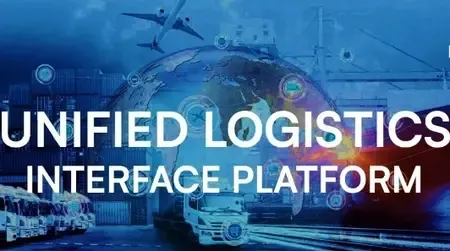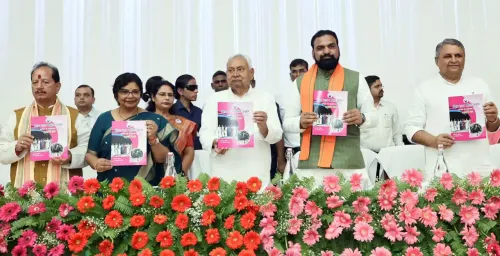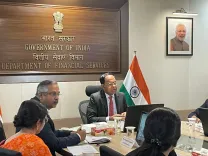Has the Unified Logistics Interface Platform Surpassed 160 Crore Transactions Under the National Logistics Policy?

Synopsis
Key Takeaways
- ULIP has processed over 160 crore transactions.
- It connects over 30 digital systems for streamlined logistics.
- The National Logistics Policy aims for global alignment.
- Real-time tracking of over 75 million EXIM containers.
- Focus on sustainability and green logistics.
New Delhi, Sep 16 (NationPress) The unified logistics interface platform (ULIP) has facilitated over 160 crore digital transactions by seamlessly connecting more than 30 digital systems through secure APIs, according to the Department for Promotion of Industry and Internal Trade (DPIIT), part of the Ministry of Commerce and Industry, which announced this on Tuesday.
Officials highlighted that the platform has optimized processes throughout the supply chain, enhancing both visibility and efficiency for logistics operations on a domestic and international scale.
In tandem with ULIP, the Logistics Data Bank has been tracking over 75 million EXIM containers across 101 inland container depots, providing businesses with real-time insights and minimizing delays.
Unveiled by Prime Minister Narendra Modi on September 17, 2022, the National Logistics Policy aims to reduce logistics costs, bolster digital integration, and align India with global standards.
Over the last three years, it has closely synced with the PM GatiShakti National Master Plan to bolster infrastructure, enhance skill development, and implement regulatory reforms.
This policy has notably improved India’s global standing, with the World Bank’s Logistics Performance Index ranking the nation at 38th.
Efforts like the LEADS index, LEAPS awards, and logistics cost assessments have further propelled reforms, while extensive Multi-Modal Logistics Parks are under construction to boost multimodal transport, equipped with facilities like cold storage, packaging, and customs clearance.
There has also been a strong emphasis on sustainability and green logistics. Tools like the Transportation Emissions Measurement Tool (TEMT), developed by IIM Bangalore, are aiding companies in adopting environmentally friendly practices that comply with global standards.
Furthermore, logistics education and training have surged, with over 100 institutes offering courses and more than 65,000 professionals trained since 2023.
Officials acknowledged that while significant progress has been made, challenges persist regarding infrastructure deficits and the need for regulatory harmonization.
The government is committed to tackling these issues through improved coordination among the Centre, States, and private sector participants, supported by a holistic approach under PM GatiShakti.









